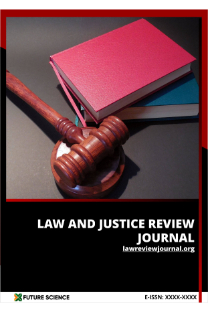CRITICALLY ASSESS THE RELATIONSHIP BETWEEN GLOBAL DEVELOPMENT AND JUSTICE
Küresel Kalkınma ve Adalet İlişkisinin Eleştirel Değerlendirmesi
___
Andrews, James (2016). Could your old Harry Potter books make you thousands? This is how to find out. Retrieved from http://www.mirror.co.uk/money/could-your-old harry-potter-7464484Chimni, B.S (2006). Third World Approaches to International Law: A Manifesto. International Community Law Review 8: 3–27, The Netherlands.
Esteva, Gustavo (1992). Development’ in W. Sachs ed. The Development Dictionary: a guide to knowledge as power London: Zed Books.
Human Journey (2015). Creating a Sustainable Future. Retrieved from http://www.humanjourney.us/aid-Introduction.html
Faundez, Julio (2010) ‘International Economic Law and Development: Before and After Neo-Liberalism’ in J. Faundez and C. Tan eds International Economic Law, Globalization and Developing Countries Cheltenham: Edward Elgar.
Osterhammel, Jürgen (2002) ‘Colonialist ideology’ in Colonialism: a theoretical overview Marcus Reiner& Ian Randle (eds).
Eslava, Luis (2015) Local Space, Global Life: The Everyday Operation of International Law and Development
Marois, Thomas & Pradella, Lucia (2015) ‘Polarising Development’ in L Pradella & T Marois (eds) Polarising Development: Alternatives to Neoliberalism and the Crisis London: Pluto.
Wade, Robert (2004). Globalization, Poverty and Income Distribution: Does the Liberal Argument Hold? No:02-33, Development Studies Institute London School of Economics and Political Science Houghton Street, London
- ISSN: 1309-9485
- Yayın Aralığı: 2
- Başlangıç: 2010
- Yayıncı: Türkiye Adalet Akademisi
Türkiye Adalet Akademisi’nin Kurumsal Yapısı ve Görevleri
GLOBAL LEGAL PLURALISM: A NEW CHALLENGE TO INTERNATIONAL LAW?
DIRECTORS’ DISCRETION AGAINST HOSTILE TAKEOVER BIDS: SUGGESTIONS FOR TURKISH LAW
Denetimli Serbestlik İşliyor mu? Türk Denetimli Serbestlik Sistemi Üzerine Bir Değerlendirme
Saldırgan Devralma Tekliflerine Karşı Yönetim Kurulunun Takdir Yetkisi: Türk Hukuku İçin Öneriler
Küresel Hukuki Çoğulluk: Uluslararası Hukuk İçin Yeni bir Meydan Okuma Mı?
Uluslararası Hukuk Kapsamında İsrail Yüksek Mahkemesi’nin İşgal ile İlgili Kararlarının Eleştirisi
Furtum’un Objektif Unsuru: Contrectatio
Sular İçin Hayati Koruma: Birleşik Devletler Temiz Su Yasası Vatandaş Davaları Hükmü
